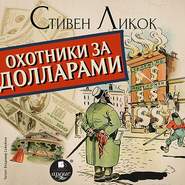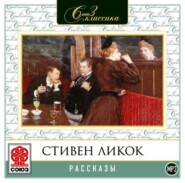По всем вопросам обращайтесь на: info@litportal.ru
(©) 2003-2025.
✖
Winsome Winnie and other New Nonsense Novels
Автор
Год написания книги
2019
Настройки чтения
Размер шрифта
Высота строк
Поля
"'Pray, calm yourself, my dear young lady,' I said, 'and try to tell me what is the trouble.'
"'Oh, don't lose any time,' she said, 'do, do come at once.'
"'We will lose no time' I said reassuringly, as I looked at my watch. 'It is now seven-thirty. We will reckon the time from now, with overtime at time and a half. But if I am to do anything for you I must have some idea of what has happened.'
"'The cellar boiler,' she moaned, clasping her hands together, 'the cellar boiler won't work!'
"'Ah!' I said soothingly. 'The cellar boiler won't work. Now tell me, is the feed choked, miss?'
"'I don't know,' she exclaimed.
"'Have you tried letting off the exhaust?'
"She shook her head with a doleful look.
"'I don't know what it is,' she said.
"But already I was hastily gathering together a few instruments, questioning her rapidly as I did so.
"'How's your pressure gauge?' I asked. 'How's your water? Do you draw from the mains or are you on the high level reservoir?'
"It had occurred to me at once that it might be merely a case of stoppage of her main feed, complicated, perhaps, with a valvular trouble in her exhaust. On the other hand it was clear enough that, if her feed was full and her gauges working, her trouble was more likely a leak somewhere in her piping.
"But all attempts to draw from the girl any clear idea of the symptoms were unavailing. All she could tell me was that the cellar boiler wouldn't work. Beyond that her answers were mere confusion. I gathered enough, however, to feel sure that her main feed was still working, and that her top story check valve was probably in order. With that I had to be content.
"As a young practitioner, I had as yet no motor car. Simmons, however, summoned me a taxi, into which I hurriedly placed the girl and my basket of instruments, and was soon speeding in the direction she indicated. It was a dark, lowering night, with flecks of rain against the windows of the cab, and there was something in the lateness of the hour (it was now after half-past eight) and the nature of my mission which gave me a stimulating sense of adventure. The girl directed me, as I felt sure she would, towards the capitalist quarter of the town. We had soon sped away from the brightly lighted streets and tall apartment buildings among which my usual practice lay, and entered the gloomy and dilapidated section of the city where the unhappy capitalist class reside. I need not remind those of you who know it that it is scarcely a cheerful place to find oneself in after nightfall. The thick growth of trees, the silent gloom of the ill-lighted houses, and the rank undergrowth of shrubs give it an air of desolation, not to say danger. It is certainly not the place that a professional man would choose to be abroad in after dark. The inhabitants, living, so it is said, on their scanty dividends and on such parts of their income as our taxation is still unable to reach, are not people that one would care to fall in with after nightfall.
"Since the time of which I speak we have done much to introduce a better state of things. The opening of day schools of carpentry, plumbing and calcimining for the children of the capitalist is already producing results. Strange though it may seem, one of the most brilliant of our boiler fitters of to-day was brought up haphazard in this very quarter of the town and educated only by a French governess and a university tutor. But at the time practically nothing had been done. The place was infested with consumers, and there were still, so it was said, servants living in some of the older houses. A butler had been caught one night in a thick shrubbery beside one of the gloomy streets.
"We alighted at one of the most sombre of the houses, and our taxi-driver, with evident relief, made off in the darkness.
"The girl admitted us into a dark hall, where she turned on an electric light. 'We have light,' she said, with that peculiar touch of pride that one sees so often in her class, 'we have four bulbs.'
"Then she called down a flight of stairs that apparently led to the cellar:
"'Father, the plumber has come. Do come up now, dear, and rest.'
"A step sounded on the stairs, and there appeared beside us one of the most forbidding-looking men that I have ever beheld. I don't know whether any of you have ever seen an Anglican Bishop. Probably not. Outside of the bush, they are now never seen. But at the time of which I speak there were a few still here and there in the purlieus of the city. The man before us was tall and ferocious, and his native ferocity was further enhanced by the heavy black beard which he wore in open defiance of the compulsory shaving laws. His black shovel-shaped hat and his black clothes lent him a singularly sinister appearance, while his legs were bound in tight gaiters, as if ready for an instant spring. He carried in his hand an enormous monkey wrench, on which his fingers were clasped in a restless grip.
"'Can you fix the accursed thing?' he asked.
"I was not accustomed to being spoken to in this way, but I was willing for the girl's sake to strain professional courtesy to the limit.
"'I don't know,' I answered, 'but if you will have the goodness first to fetch me a little light supper, I shall be glad to see what I can do afterwards.'
"My firm manner had its effect. With obvious reluctance the fellow served me some biscuits and some not bad champagne in the dining-room.
"The girl had meantime disappeared upstairs.
"'If you're ready now,' said the Bishop, 'come on down.'
"We went down to the cellar. It was a huge, gloomy place, with a cement floor, lighted by a dim electric bulb. I could see in the corner the outline of a large furnace (in those days the poorer classes had still no central heat) and near it a tall boiler. In front of this a man was kneeling, evidently trying to unscrew a nut, but twisting it the wrong way. He was an elderly man with a grey moustache, and was dressed, in open defiance of the law, in a military costume or uniform.
"He turned round towards us and rose from his knees.
"'I'm dashed if I can make the rotten thing go round,' he said.
"'It's all right, General,' said the Bishop. 'I have brought a plumber.'
"For the next few minutes my professional interest absorbed all my faculties. I laid out my instruments upon a board, tapped the boiler with a small hammer, tested the feed-tube, and in a few moments had made what I was convinced was a correct diagnosis of the trouble.
"But here I encountered the greatest professional dilemma in which I have ever been placed. There was nothing wrong with the boiler at all. It connected, as I ascertained at once by a thermo-dynamic valvular test, with the furnace (in fact, I could see it did), and the furnace quite evidently had been allowed to go out.
"What was I to do? If I told them this, I broke every professional rule of our union. If the thing became known I should probably be disbarred and lose my overalls for it. It was my plain professional duty to take a large hammer and knock holes in the boiler with it, smash up the furnace pipes, start a leak of gas, and then call in three or more of my colleagues.
"But somehow I couldn't find it in my heart to do it. The thought of the girl's appealing face arose before me.
"'How long has this trouble been going on?' I asked sternly.
"'Quite a time,' answered the Bishop. 'It began, did it not, General, the same day that the confounded furnace went out? The General here and Admiral Hay and I have been working at it for three days.'
"'Well, gentlemen,' I said, 'I don't want to read you a lesson on your own ineptitude, and I don't suppose you would understand it if I did. But don't you see that the whole trouble is because you let the furnace out? The boiler itself is all right, but you see, gents, it feeds off the furnace.'
"'Ah,' said the Bishop in a deep melodious tone, 'it feeds off the furnace. Now that is most interesting. Let me repeat that; I must try to remember it; it feeds off the furnace. Just so.'
"The upshot was that in twenty minutes we had the whole thing put to rights. I set the General breaking up boxes and had the Bishop rake out the clinkers, and very soon we had the furnace going and the boiler in operation.
"'But now tell me,' said the Bishop, 'suppose one wanted to let the furnace out—suppose, I mean to say, that it was summer-time, and suppose one rather felt that one didn't care about a furnace and yet one wanted one's boiler going for one's hot water, and that sort of thing, what would one do?'
"'In that case,' I said, 'you couldn't run your heating off your furnace: you'd have to connect in your tubing with a gas generator.'
"'Ah, there you get me rather beyond my depth,' said the Bishop.
"The General shook his head. 'Bishop,' he said, 'just step upstairs a minute; I have an idea.'
"They went up together, leaving me below. To my surprise and consternation, as they reached the top of the cellar stairs, I saw the General swing the door shut and heard a key turn in the lock. I rushed to the top of the stairs and tried in vain to open the door. I was trapped. In a moment I realized my folly in trusting myself in the hands of these people.
"I could hear their voices in the hall, apparently in eager discussion.
"'But the fellow is priceless,' the General was saying. 'We could take him round to all the different houses and make him fix them all. Hang it, Bishop, I haven't had a decent tap running for two years, and Admiral Hay's pantry has been flooded since last March.'
"'But one couldn't compel him?'
"'Certainly, why not? I'd compel him bally quick with this.'
"I couldn't see what the General referred to, but had no doubt that it was the huge wrench that he still carried in his hand.
"'We could gag the fellow,' he went on, 'take him from house to house and make him put everything right.'














